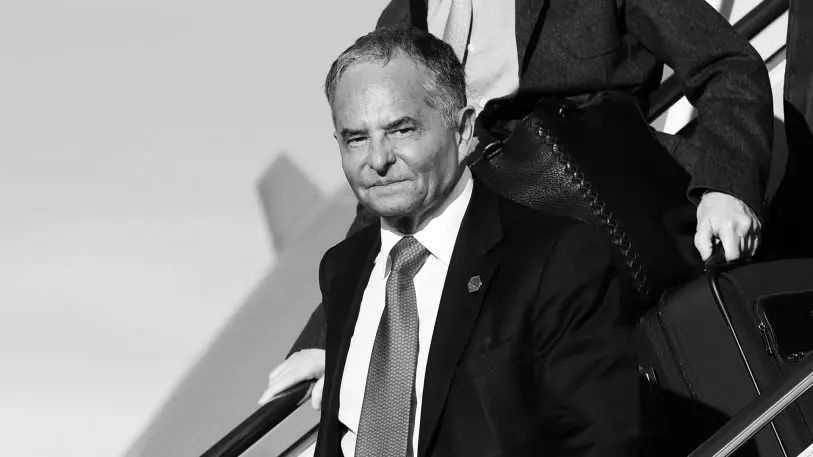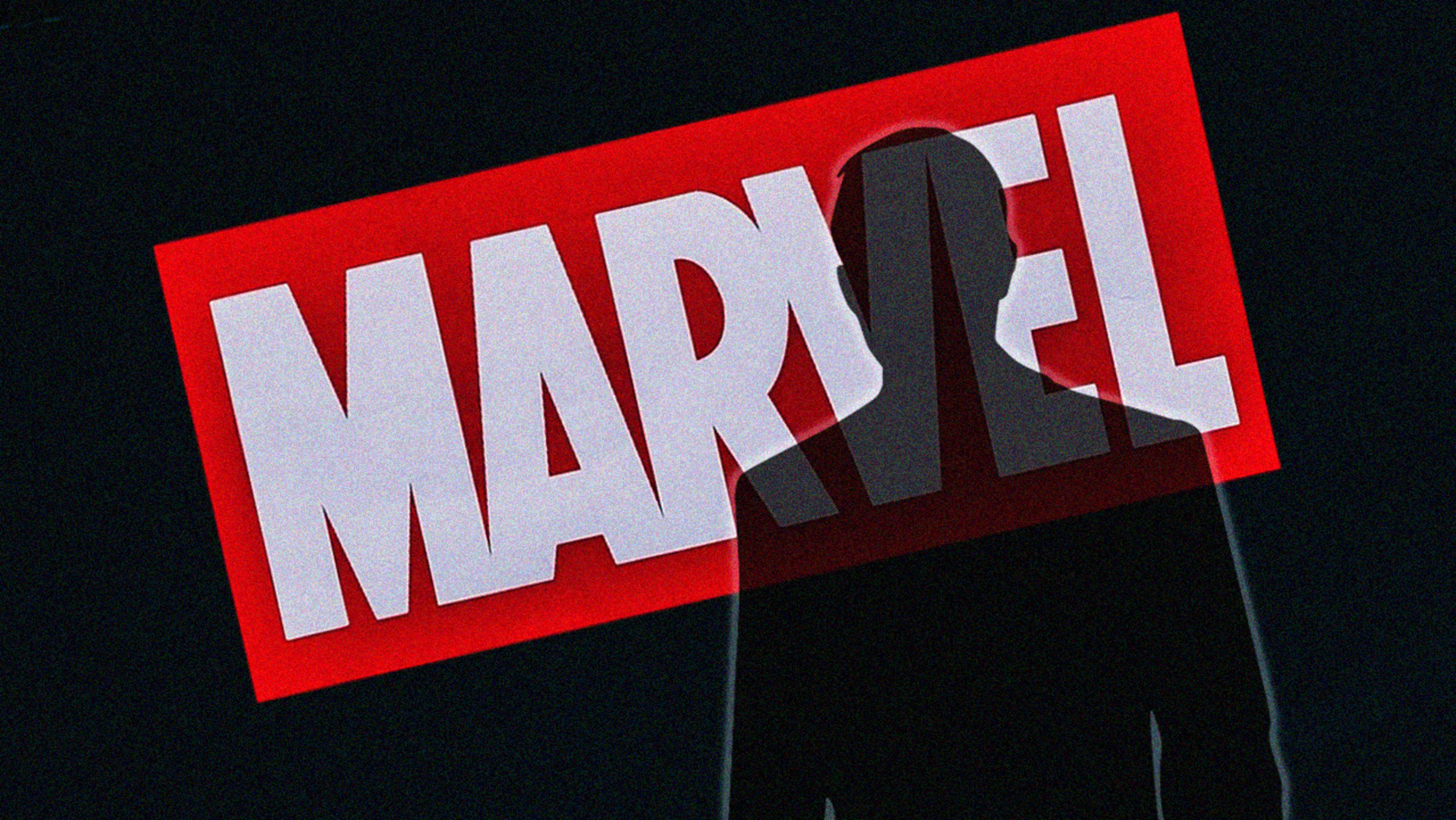Last week, Marvel Entertainment made headlines. But it wasn’t just because of all the Oscar chatter surrounding Black Panther and the odds that the billion-dollar-grossing hit may nab a Best Picture nomination.
The story was about Marvel Entertainment chairman Isaac “Ike” Perlmutter, who was named in a bribery trial by former NYPD Sgt. David Villanueva. According to the New York Daily News, Villanueva testified that he helped expedite the renewal of Perlmutter’s gun license. He also said that Perlmutter’s assistant at Marvel gave Villanueva tickets to six Marvel premieres.
A source close to Perlmutter denies that the exchange was quid pro quo and claims that Perlmutter renewed his license, which he’s had for 30 years, by standard protocol. This person adds that Marvel regularly gives out premiere tickets to colleagues, friends, and other people who have dealings with the company.
Neither Marvel nor its parent company Disney have publicly commented on the issue, just as they have not publicly made a peep about any of the controversies that Perlmutter has been involved in for years now. There’s the bizarre legal drama over who should run the tennis courts at the tony Palm Beach residential community where Perlmutter lives part-time. The saga involves Perlmutter allegedly sending out anonymous hate mail in 2011, slandering another resident, Canadian billionaire Harold Peerenboom, and Peerenboom suing Perlmutter and trying to harvest Perlmutter’s DNA. More potentially damning is Perlmutter’s alleged involvement, with two other men who frequent President Trump’s Mar-a-Lago club, in government activities. The three are alleged to have influenced a $10 billion contract related to a digital systems overhaul at the Department of Veterans Affairs (a media report called the troika the “shadow rulers” of the VA). Last week, the Government Accountability Office said that it is investigating the group for improper influence over the veterans agency.
At this point, Perlmutter hasn’t been charged with any wrongdoing. But Disney and Marvel’s reticence over the 75-year-old executive, who oversees Marvel’s television and publishing arms, strikes some in Hollywood as inconsistent with the media giant’s low threshold for controversy. Consider what happened when earlier this year Guardians of the Galaxy director James Gunn’s years-old tweets concerning verboten topics like rape and pedophilia were unearthed: He was fired from the franchise. More recently, the comic book writer Charles Wendig, who wrote best-selling Star Wars graphic novels for Marvel as well as a new Darth Vader series, was axed after lashing out on Twitter against Republicans and Brett Kavanaugh during the controversial judge’s Supreme Court confirmation hearings.
Wendig told The Washington Post that his termination was due to the nature of his tweets: “My politics, the vulgarity used to express them, and the negativity of all of it.”
And of course there was the Roseanne debacle: The comedian was removed last May from her comeback hit show on the Disney-owned network ABC after she made a racial slur on Twitter.
The terminations of Gunn and Wendig unleashed a backlash from fans claiming that the two men were exercising their First Amendment rights. (As for Roseanne, there was more head-scratching as to why ABC had hired her in the first place, given her history of insensitive comments.) Yet for those familiar with Disney’s culture, the disciplinary actions didn’t seem completely out of character for the world’s largest family entertainment brand. The company is known for being a strict moral and ethical steward of its brands–which include Disney, Marvel, Pixar, Star Wars, ABC, and ESPN–and for acting swiftly to protect its squeaky-clean reputation, particularly when controversies become public and threaten to affect its Wall Street standing.
Earlier this year, two cases that were much more serious than outrageous tweets illustrated how Disney usually deals with controversy: Former Pixar and Disney Animation creative head John Lasseter stepped down from his posts following #MeToo-related allegations, and John Skipper, the former president of ESPN, resigned from his post, saying he suffered from a substance addiction.
So why does Perlmutter’s alleged behavior only elicit shrugs from Disney’s brass? Is it because his transgressions haven’t reached Twitter trending status, as most of the above cases did? (There has been some mild unrest on Twitter, with some users questioning why Perlmutter hasn’t gotten the James Gunn treatment, but nothing close to a real movement.) Disney, after all, is also known for taking the public temperature. “They’re very good at testing the water,” says one industry executive. “They’re good at taking the hard line and then moving the line back as public perception works against or for them. At the end of the day, it’s all about public perception.”
And so far, there hasn’t been any public outcry over Perlmutter, likely due to the fact that most people don’t associate him with the Disney or Marvel brands or even know exactly who he is. And Disney hasn’t called attention to any of it by issuing statements.
Neither Disney nor Marvel would comment for this story.

The self-made billionaire was born in Israel and arrived in the U.S. with $250 in his pocket when he was 24. His curmudgeonliness is as legendary as his shrewdness and thrift. He once limited the number of sodas that journalists were entitled to at a Marvel press junket. And according to a source at Marvel Comics, he’s been known to pull paperclips out of the trash cans at Marvel’s publishing office in New York. These traits were assets to Marvel back in the 1990’s, when Perlmutter’s former outfit Toy Biz rescued the comics company from bankruptcy. And before Marvel was flush with Disney’s cash, Perlmutter helped rein in film budgets and marketing costs in part by hiring filmmakers like Jon Favreau, who, when he was hired to direct Iron Man, was coming off the clunker Zathura. Perlmutter was also an instrumental architect of the $4 billion sale of Marvel to Disney. But as Marvel Studios–the company’s film division–began taking off under the direction of Kevin Feige, Perlmutter’s controlling ways became more problematic, reportedly causing clashes over budgets and the scope of the films. This led to a structural reorganization at Marvel in 2015 that removed Perlmutter from any purview over Marvel movies; a move that Disney chairman and CEO Bob Iger has admitted in an interview miffed Perlmutter.
At Marvel, Perlmutter has a history of reportedly making the kind of racist remarks that have gotten others fired. When Don Cheadle was hired to replace Terrence Howard in Iron Man, Perlmutter allegedly told a Disney consumer products executive that no one would notice because black people “look the same.” Following the episode, three female African-American executives in consumer products departed Disney with settlements after complaining about Perlmutter.
Perlmutter’s extracurricular activities have taken on a more surreal quality. Over the summer, ProPublica published a deep dive report on Perlmutter’s role as the leader of a Mar-a-Lago troika that informally advises Trump and has had “sweeping” influence over the Department of Veterans Affairs–a passion project for the Israel-born Perlmutter, who served in the Six-Day War. Perlmutter, along with Dr. Bruce Moskowitz and Marc Sherman, a lawyer, have reportedly hounded VA officials and steered policies at the VA, including delaying the transformation of the agency’s digital records system by attempting to put the kibosh on a $10 billion contract with a software company. The GOA is now investigating the matter.
Perlmutter, Moskowitz, and Sherman have denied having any direct influence over the VA.
As for the tennis court drama, the case has been tied up in court for five years in a continuous swirl of lawsuits and counter lawsuits.
Marvel executives increasingly try to create distance from Perlmutter. One source insisted that he has a “ceremonial title” at Marvel and is “not much of a presence,” despite being the head of Marvel’s TV and publishing arms. Others say he still very much exerts his penny-pinching control and remains involved in business decisions. He also happens to be one of Disney’s biggest shareholders and, according to a 2016 Hollywood Reporter interview with Iger, actively engages the chairman. “He likes to call me at seven in the morning,” Iger said of Perlmutter. “Sometimes I’ll say, ‘Ike, I’ve just pushed the button on the coffee maker and I haven’t had my first cup yet, so I need 10 minutes.’ ”
All of this explains the delicate balance that Marvel and Disney must walk when addressing–or not–Perlmutter’s actions.
As one industry insider put it, “He’s a thorn in their side. But they obviously have to be very careful. Without any empirical data or proof that he’s done something, what can they say?”
This source did concede that given the Gunn and Wendig firings, keeping quiet on Perlmutter conveys a “double standard” when it comes to Disney’s human resource policies.
But according to a crisis communications veteran: “It would be needlessly preemptive for them to wade in” and say anything publicly about Perlmutter. Bad press, this person says, is easier to deal with than “trying to explain the Ike-Marvel-Disney equation.”
The Perlmutter dilemma brings to mind other examples of executives who have gotten embroiled in controversies. In 2014, Tom Perkins, the legendary VC founder of Kleiner, Perkins, wrote an op-ed piece in the Wall Street Journal in which he compared the “war” on the “American one percent” to the Nazis’ persecution of the Jews. His former firm, Kleiner Perkins Caulfield & Byers, distanced itself, posting an online statement on that said, “Tom Perkins has not been involved in KPCB in years. We were shocked by his views expressed today in the WSJ and do not agree.”
The reclusive Perlmutter has no interest in the limelight. He rarely attends Marvel events, and certainly doesn’t draw attention by writing articles for major newspapers–which is an asset to Disney and Marvel. But if his exploits keep up, and the hashtags heat up, they may have no choice but to take action.
Recognize your brand’s excellence by applying to this year’s Brands That Matter Awards before the final deadline, June 7.
Sign up for Brands That Matter notifications here.
